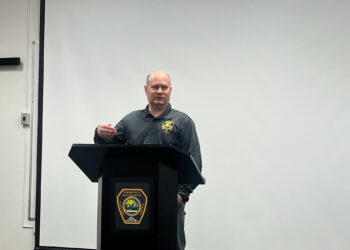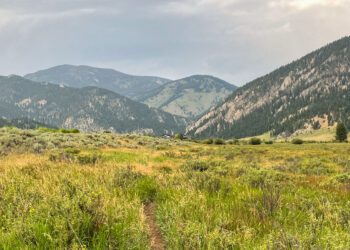By EBS Staff
U.S. House race
A Republican has occupied Montana’s lone seat in the U.S. House of Representatives since Rick Hill was sworn in after the 1996 election. The GOP currently holds a 247-187 majority in the House and it’s unlikely Democrats will retake control after the Nov. 8 election.
As of Oct. 12, ballotpedia.org “currently rates this race as safely Republican,” when incumbent Ryan Zinke squares off against challenger Denise Juneau, though the Democratic Congressional Campaign Committee has Juneau on their list of “Red to Blue” candidates.
The candidates:
Ryan Zinke (R) –
Rep. Zinke won the 2014 race with 55 percent of the vote over Democrat John Lewis, after Steve Daines vacated the seat to successfully run for Senate. A graduate of Whitefish High School, Zinke attended the University of Oregon on a football scholarship and graduated with a bachelor’s in geology. He also earned a master’s in both business finance and global leadership from the University of San Diego. He served as a U.S. Navy SEAL for 23 years, and a Montana state senator from 2009 to 2011.
Denise Juneau (D) –
Denise Juneau was elected in 2008 as the State Superintendent of Public Instruction and served two four-year terms heading the Montana Office of Public Instruction. After graduating from Browning High School, Denise received her bachelor’s degree in English from Montana State University and earned a master’s from the Harvard Graduate School of Education. Juneau is also a graduate of the University of Montana Law School, a member of the Mandan Hidatsa Tribes and is Montana’s first openly gay candidate for federal office.
Here’s a look at some of the issues, and where the candidates stand through quotes from the Oct. 5 congressional debate held in Great Falls. Zinke and Juneau were joined on the stage by Libertarian candidate Rick Breckenridge who replaced Mike Fellows on the ballot after Fellows died as a result of a September car accident. Breckenridge was an animated addition to the debate, but for brevity’s sake we’re only including the two major party candidates.
National Security
(The first question asked during the debate was in regard to Malmstrom Air Force Base near Great Falls: With the base’s nuclear missiles set to become obsolete within 15 years, what would you do to keep it open?)
Zinke: “Our ground-based missiles are the most reliable and the most cost-effective [in our nuclear arsenal]. As your congressman, I recently put [forth] an initiative that our helicopters are updated, because they need to be updated … Great Falls has great potential to be used as a training base, as it should … I’m feeling pretty optimistic about Great Falls. I don’t think that the missiles are going to be going anywhere.”
Juneau: “That mission [at Malmstrom] is still critical for this country. It’s the best nuclear deterrent we have, the most cost-effective … we need to do everything that we can—the silos, the weapons definitely need to be modernized … We need to protect the base, make sure it stays here in Montana and Great Falls.”
Gun Control
Juneau: “I do believe we have enough laws on the books. We need to enforce those laws currently there … There is a bill moving through Congress I support that would keep criminals and terrorists from buying guns. Congress can’t even take that step. That strengthens the rights of law-abiding citizens and responsible gun owners.”
Zinke: “Who’s on the no-fly list and how do you get on it? It’s secret. But more importantly how do you get off of it? If your rights can be taken away from you [by] the government and you have petitioned the government to get those rights back what other rights are sacred?”
Healthcare (Affordable Care Act)
(The panelist noted that the median lifespan for American Indians in Montana is 19 years shorter than that of whites.)
Juneau: “I’m from Browning, Montana, I’m on the reservation. I hear stories from the Indian Health Service [and] think every Indian that accesses that healthcare has stories of not great service. We need to do better about Indian healthcare. Right now under the Affordable Care Act, thousands of American Indians now have access to other opportunities in healthcare. That’s a good first step … We need to make sure there’s preventive care on reservations.”
Zinke: “Obamacare has been a disaster … how do we make it better? … In Montana you can’t have a $10,000 deductible and ask a family to pay $1,200 a year for healthcare. We don’t make that much … So if we want to fix healthcare we’ve got to do it at the frontline … In Montana the Medicare rates should be improved so that we’re on par. We’re not.”











